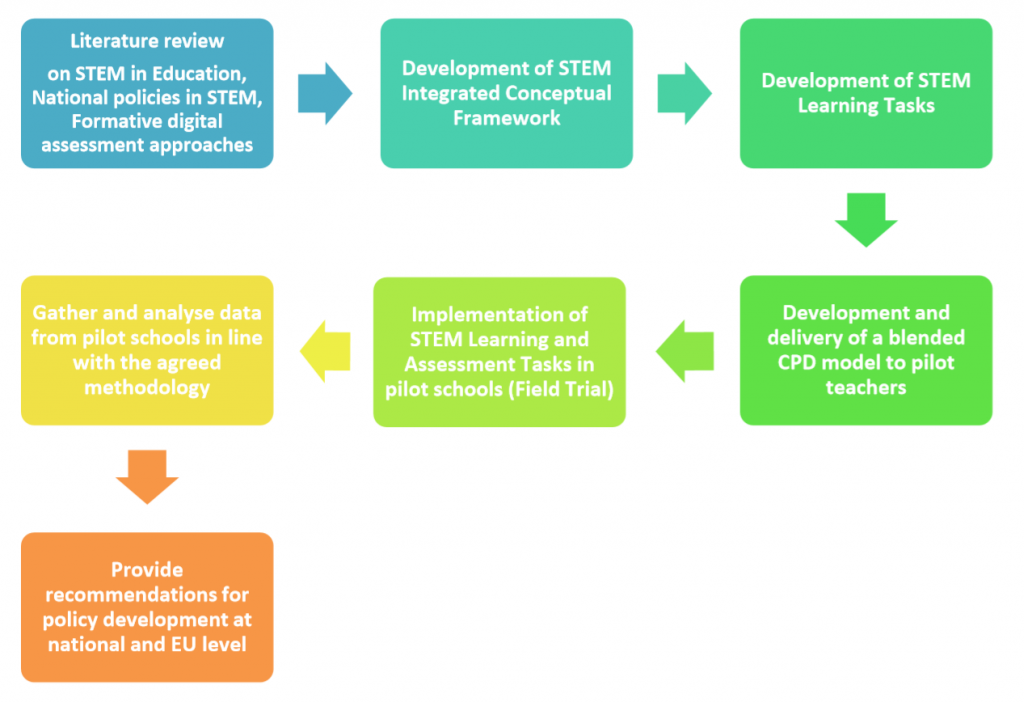ATS STEM consists of three phases: the pre-experimentation phase (research and development and detailed planning in partner institutions), the experimentation phase (field trials and evaluation at schools) and the post-experimentation phase (data analysis, reporting and exploitation).
The policy experimentation project has a dual objective. On the one hand, to “know and explain” the process of implementing the ATS-STEM program, and on the other, to “understand” how it works in different contexts (schools, classrooms, countries) and hence make proposals to “improve it”.
Therefore, research and development is integrated into the design of the ATS-STEM educational project to allow decisions to be made based on evidence gathered throughout the entire process. In this sense, the evaluative research goal of ATS STEM is to analyze the possibilities of digital assessment in the implementation of teaching STEM skills and competences in European schools. The research will collect evidence on the use of digital technology to enhance how we assess student learning. The project will seek to determine the impact on implementation of STEM methodologies and answer questions such as:
How might digital assessment practices support the development of STEM competences?
What are the challenges to using digital assessment strategies in STEM learning?
Why apply digital assessment in the development of STEM projects?
What does digital assessment contribute to STEM teaching and learning processes?
What are the digital assessment tools and methodologies we can empower teachers to use?




